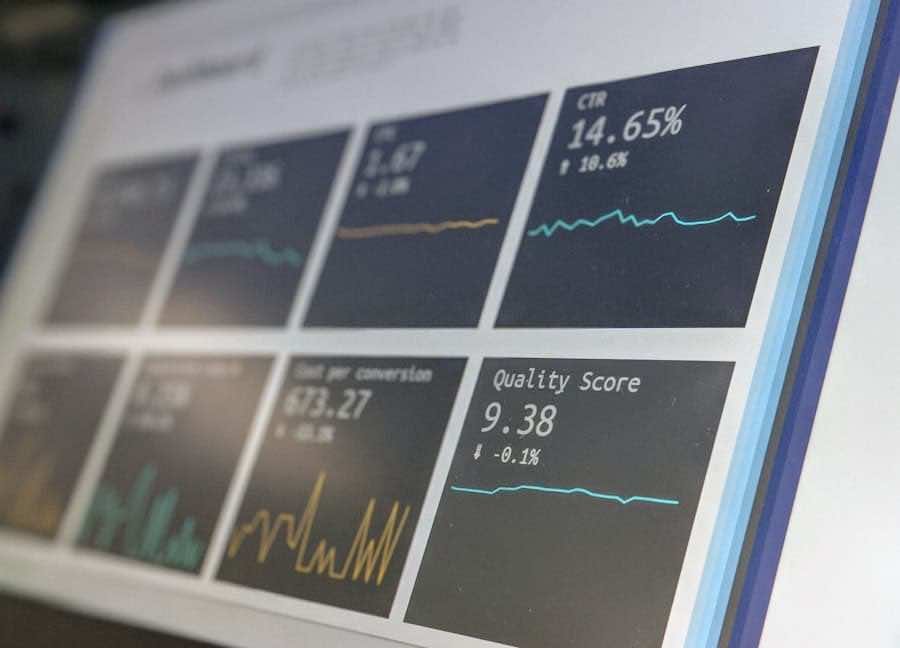In the rapidly evolving landscape of digital marketing, social commerce has emerged as a pivotal component of e-commerce strategies. Social commerce refers to the integration of social media platforms with online shopping experiences, allowing consumers to discover, research, and purchase products directly through social channels. As businesses increasingly recognise the potential of social media as a sales channel, the need for robust analytics to measure performance and optimise strategies becomes paramount.
Social commerce analytics encompasses the collection, measurement, and analysis of data derived from social media interactions, providing insights that can drive business decisions and enhance customer experiences. The significance of social commerce analytics lies in its ability to bridge the gap between social engagement and sales conversion. By leveraging data from various social platforms, businesses can gain a comprehensive understanding of consumer behaviour, preferences, and trends.
This analytical approach not only aids in tracking the effectiveness of marketing campaigns but also helps in identifying opportunities for growth and improvement. As brands strive to create more personalised and engaging shopping experiences, the role of analytics in shaping these strategies cannot be overstated.
Summary
- Social commerce analytics involves the use of data and metrics to understand and improve social commerce performance.
- Data plays a crucial role in social commerce, providing insights into customer behaviour, preferences, and trends.
- Key metrics and KPIs in social commerce analytics include conversion rate, engagement rate, customer lifetime value, and return on ad spend.
- Social media data can be used to gain valuable business insights, such as understanding customer sentiment and preferences.
- Customer engagement and sentiment analysis are important for building and maintaining strong relationships with customers in social commerce.
Understanding the Role of Data in Social Commerce
Data serves as the backbone of social commerce analytics, providing the necessary insights to inform decision-making processes. The vast amount of information generated on social media platforms—from likes and shares to comments and direct messages—offers a treasure trove of data that can be harnessed for strategic advantage. Understanding how to collect, interpret, and utilise this data is crucial for businesses aiming to thrive in the competitive landscape of social commerce.
One of the primary roles of data in social commerce is to facilitate targeted marketing efforts. By analysing user demographics, interests, and behaviours, brands can tailor their messaging and product offerings to resonate with specific audience segments. For instance, a fashion retailer might analyse data from Instagram to identify trending styles among younger consumers, allowing them to curate collections that align with these preferences.
Furthermore, data-driven insights enable businesses to optimise their advertising spend by focusing on high-performing campaigns and channels, ultimately leading to improved return on investment.
Key Metrics and KPIs in Social Commerce Analytics

To effectively measure the success of social commerce initiatives, businesses must establish key performance indicators (KPIs) that align with their objectives. These metrics provide a quantifiable means of assessing performance and identifying areas for improvement. Common KPIs in social commerce analytics include engagement rates, conversion rates, average order value, and customer acquisition costs.
Each of these metrics offers unique insights into different aspects of the customer journey. Engagement rates, for example, reflect how well content resonates with audiences on social media. High engagement indicates that users are interacting with posts through likes, shares, and comments, which can lead to increased brand visibility and awareness.
Conversion rates, on the other hand, measure the percentage of users who complete a purchase after engaging with social media content. This metric is critical for understanding the effectiveness of marketing strategies in driving sales. By closely monitoring these KPIs, businesses can make informed decisions about where to allocate resources and how to refine their approaches for maximum impact.
Utilizing Social Media Data for Business Insights
The utilisation of social media data extends beyond mere performance tracking; it can also provide profound insights into consumer behaviour and market trends. By employing advanced analytics techniques such as sentiment analysis and trend forecasting, businesses can gain a deeper understanding of their target audience’s preferences and pain points. For instance, analysing customer feedback on platforms like Twitter or Facebook can reveal common themes regarding product satisfaction or dissatisfaction, enabling brands to address issues proactively.
Moreover, social media data can inform product development and innovation. By monitoring conversations around specific products or categories, companies can identify gaps in the market or emerging trends that warrant exploration. For example, if a beauty brand notices a surge in discussions about sustainable packaging among its audience, it may choose to invest in eco-friendly packaging solutions to meet consumer demand.
This data-driven approach not only enhances product offerings but also strengthens brand loyalty by demonstrating responsiveness to customer needs.
The Importance of Customer Engagement and Sentiment Analysis
Customer engagement is a critical component of successful social commerce strategies. Engaged customers are more likely to make purchases, advocate for brands, and contribute to positive word-of-mouth marketing. Therefore, understanding how to foster engagement through social media interactions is essential for driving sales and building long-term relationships with consumers.
Social commerce analytics plays a vital role in measuring engagement levels and identifying effective tactics for enhancing customer interactions. Sentiment analysis is a particularly valuable tool within this context. By analysing the tone and emotion behind customer comments and reviews, businesses can gauge public perception of their brand and products.
Positive sentiment can indicate strong brand affinity, while negative sentiment may highlight areas requiring attention or improvement. For instance, if a company receives numerous negative comments about a specific product feature, it may prompt a review of that feature or lead to adjustments in marketing messaging. By actively monitoring sentiment, brands can respond swiftly to customer concerns and enhance overall satisfaction.
Implementing Social Commerce Analytics Tools and Platforms

To harness the full potential of social commerce analytics, businesses must invest in appropriate tools and platforms that facilitate data collection and analysis. Numerous software solutions are available that cater specifically to social media analytics, offering features such as real-time monitoring, reporting dashboards, and advanced data visualisation capabilities. These tools enable brands to track performance metrics across multiple platforms seamlessly.
For example, platforms like Hootsuite or Sprout Social provide comprehensive analytics features that allow businesses to monitor engagement rates, follower growth, and campaign performance across various social channels from a single dashboard. Additionally, tools like Google Analytics can be integrated with social media efforts to provide insights into website traffic generated from social platforms. By leveraging these tools effectively, businesses can streamline their analytics processes and focus on deriving actionable insights that drive growth.
Best Practices for Social Commerce Analytics
Implementing effective social commerce analytics requires adherence to best practices that ensure data accuracy and relevance. One fundamental practice is establishing clear objectives before launching any social commerce initiative. By defining specific goals—such as increasing brand awareness or driving sales—businesses can tailor their analytics efforts accordingly.
This clarity helps in selecting appropriate KPIs that align with overarching business objectives. Another best practice involves regularly reviewing and updating analytics strategies based on evolving market conditions and consumer behaviours. The digital landscape is dynamic; therefore, what works today may not be effective tomorrow.
Conducting periodic audits of analytics processes allows businesses to identify gaps or inefficiencies in their approach. Furthermore, fostering a culture of data-driven decision-making within the organisation encourages teams to rely on insights rather than intuition alone when formulating strategies.
The Future of Social Commerce Analytics and Emerging Trends
As technology continues to advance at an unprecedented pace, the future of social commerce analytics is poised for significant transformation. One emerging trend is the increasing integration of artificial intelligence (AI) and machine learning into analytics processes. These technologies enable businesses to analyse vast datasets more efficiently and uncover patterns that may not be immediately apparent through traditional methods.
For instance, AI-driven algorithms can predict consumer behaviour based on historical data, allowing brands to anticipate trends and adjust their strategies proactively. Another notable trend is the rise of shoppable content on social media platforms. As features like Instagram Shopping become more prevalent, businesses must adapt their analytics approaches to measure the effectiveness of these new formats.
Understanding how users interact with shoppable posts—such as click-through rates and conversion metrics—will be essential for optimising content strategies in this evolving landscape. In conclusion, as social commerce continues to grow in importance within the e-commerce ecosystem, so too does the need for sophisticated analytics capabilities. By embracing data-driven approaches and leveraging advanced tools and techniques, businesses can unlock valuable insights that drive success in this dynamic environment.
The future promises exciting developments in social commerce analytics that will further empower brands to connect with consumers in meaningful ways while maximising their return on investment.
Social commerce analytics is a crucial tool for businesses looking to understand and improve their online sales strategies. By analysing data from social media platforms, companies can gain valuable insights into customer behaviour and preferences. A related article that delves into the importance of partnerships in business is Partnership in Action. This article highlights how collaboration between companies can lead to increased success and growth. By forming strategic partnerships, businesses can tap into new markets, access new technologies, and enhance their overall competitiveness.
FAQs
What is social commerce analytics?
Social commerce analytics refers to the process of collecting, analyzing, and interpreting data from social media platforms and other online sources to understand consumer behaviour, preferences, and trends related to e-commerce activities.
Why is social commerce analytics important?
Social commerce analytics is important because it provides valuable insights into consumer behaviour, preferences, and trends, which can help businesses make informed decisions about their e-commerce strategies, marketing efforts, and product offerings.
What type of data is collected in social commerce analytics?
In social commerce analytics, various types of data are collected, including customer demographics, purchasing behaviour, social media engagement, website traffic, and product performance metrics.
How is social commerce analytics used by businesses?
Businesses use social commerce analytics to track the performance of their e-commerce activities, understand customer preferences, identify potential influencers, optimize marketing strategies, and improve overall customer experience.
What are the benefits of using social commerce analytics?
The benefits of using social commerce analytics include improved customer targeting, enhanced marketing effectiveness, better product development, increased sales, and a deeper understanding of consumer behaviour and trends.
What are some popular social commerce analytics tools?
Popular social commerce analytics tools include Google Analytics, Facebook Insights, Instagram Insights, Twitter Analytics, and various e-commerce platforms that offer built-in analytics features.
